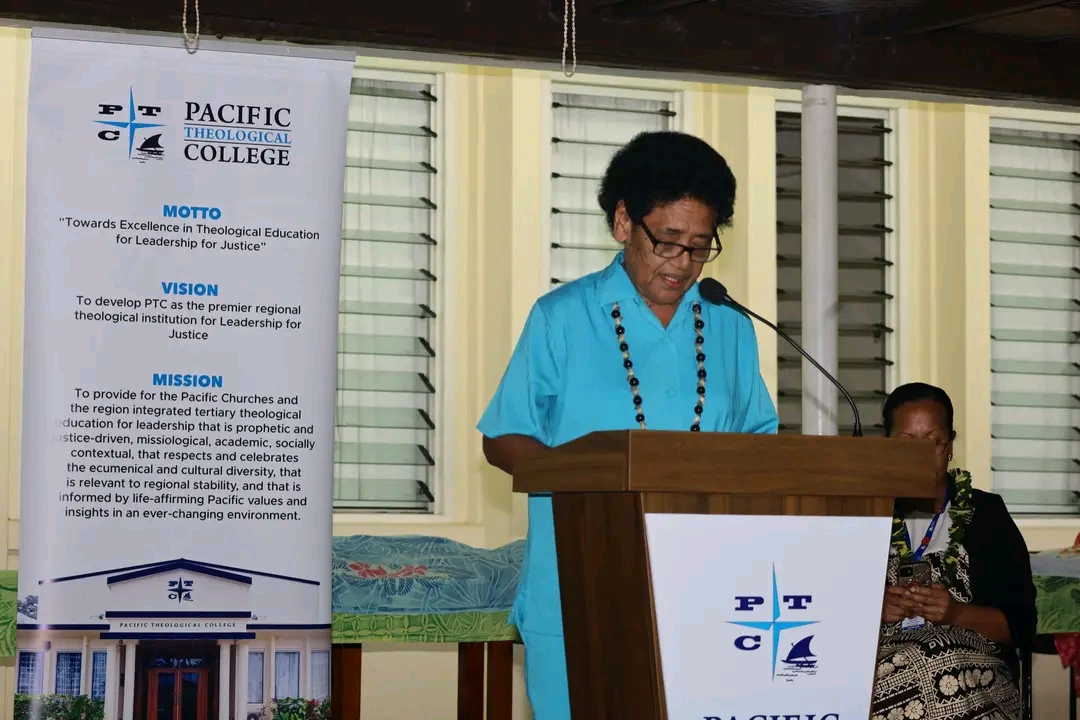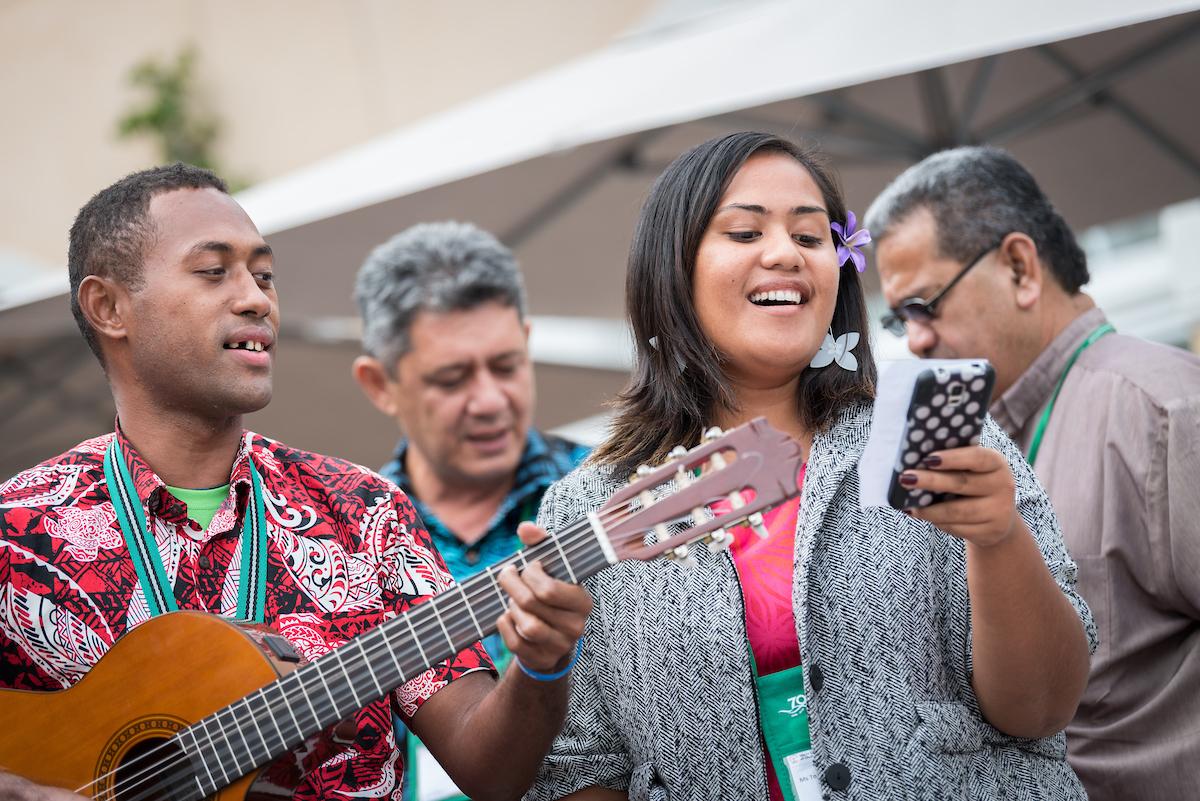
8plus1 web hosting ministry under Melanesia Web Hosting
Wewo.Kotokay
Eight Plus One for the World Peace

8plus1 web hosting ministry under Melanesia Web Hosting
Wewo.Kotokay
The theme for the self determination event and MOU signing ceremony coinciding with Pacific forum leaders meeting in Suva is “Self-determination: The unfinished journey of the Pasifika Household”.
Speakers from New Caledonia and West Papua including PCC and PTC addressed the need for the churches to support the regional self-determination movement, not just political but also economic, educational, and cultural. Also the need for a radical and new kind of theological education that deeply engages with social justice issues in a practical and communities level.




The MOU singing ceremony between the Pacific Theological College and New Caledonia displayed ecumenism and regionalism, especially regarding the passion for love and inclusion for those suffering under colonial and neocolonial systems. Here are the photo highlights from the event that was held at the PTC Fale.

Pacific Conference of Churches general secretary Rev. James Bhagwan said: “it is possible to adapt, evolve and grow while maintaining all that is good and true from faith, indigenous spirituality and culture.”
Speaking at the launch of the Regional Youth Ecumenical Council, Bhagwan encouraged the young leaders to vision the future that would be their present.
“The present in which you will lead the community, the church, the nation, the region, the planet. It is you the youth, who have the power to define what our tomorrow will look like,” he said.
The Regional Youth Ecumenical Council was held online after COVID-19 stopped all international travel.
“‘It is important to understand the lessons your ancestors of land, sea and faith learned in order to guide you forward. If you do not understand what it is that brought your people and places to this point in time – to where you are, to who you are, how can you forge ahead?” Bhagwan remarked. “I challenge you to also be wary of the ideas you inherit – to be critical in your thinking and acceptance of old conventions and previous forms, sometimes accepted without question and once accepted, they set a boundary around creativity, around inspiration and around what can be done and what can’t be done,”
he added.
Baghwan invited the young people to ponder some complex questions. ”For example, how do we take indigenous knowledge, ancient principles and wisdom and bring that into the future, removing the boundaries and limitations when we place culture into a glass box and make it static? How can our culture evolve? How can we leapfrog from pre-modern to postmodern, from pre-contact oral culture – where we sing, we dance, we weave, into a world where we are now coding?”
The Regional Youth Ecumenical Council has been established to foster intergenerational engagement with church leaders on critical issues and to lead young people in the Pacific in prophetic activism for change.
This is the 8plus1 Ministry Services for Churches in Melanesia.
We provide FREE setvices to Website hosting to all churches in Melanesia.
To register domain names please visit:
To host your domain names please email
wantkktube@gmail.com
Melanesia Web Hosting
This is an example post, originally published as part of Blogging University. Enroll in one of our ten programs, and start your blog right.
You’re going to publish a post today. Don’t worry about how your blog looks. Don’t worry if you haven’t given it a name yet, or you’re feeling overwhelmed. Just click the “New Post” button, and tell us why you’re here.
Why do this?
The post can be short or long, a personal intro to your life or a bloggy mission statement, a manifesto for the future or a simple outline of your the types of things you hope to publish.
To help you get started, here are a few questions:
You’re not locked into any of this; one of the wonderful things about blogs is how they constantly evolve as we learn, grow, and interact with one another — but it’s good to know where and why you started, and articulating your goals may just give you a few other post ideas.
Can’t think how to get started? Just write the first thing that pops into your head. Anne Lamott, author of a book on writing we love, says that you need to give yourself permission to write a “crappy first draft”. Anne makes a great point — just start writing, and worry about editing it later.
When you’re ready to publish, give your post three to five tags that describe your blog’s focus — writing, photography, fiction, parenting, food, cars, movies, sports, whatever. These tags will help others who care about your topics find you in the Reader. Make sure one of the tags is “zerotohero,” so other new bloggers can find you, too.
Introduce Yourself (Example Post) was originally published on Papua Web Hosting
This is an example post, originally published as part of Blogging University. Enroll in one of our ten programs, and start your blog right.
You’re going to publish a post today. Don’t worry about how your blog looks. Don’t worry if you haven’t given it a name yet, or you’re feeling overwhelmed. Just click the “New Post” button, and tell us why you’re here.
Why do this?
The post can be short or long, a personal intro to your life or a bloggy mission statement, a manifesto for the future or a simple outline of your the types of things you hope to publish.
To help you get started, here are a few questions:
You’re not locked into any of this; one of the wonderful things about blogs is how they constantly evolve as we learn, grow, and interact with one another — but it’s good to know where and why you started, and articulating your goals may just give you a few other post ideas.
Can’t think how to get started? Just write the first thing that pops into your head. Anne Lamott, author of a book on writing we love, says that you need to give yourself permission to write a “crappy first draft”. Anne makes a great point — just start writing, and worry about editing it later.
When you’re ready to publish, give your post three to five tags that describe your blog’s focus — writing, photography, fiction, parenting, food, cars, movies, sports, whatever. These tags will help others who care about your topics find you in the Reader. Make sure one of the tags is “zerotohero,” so other new bloggers can find you, too.